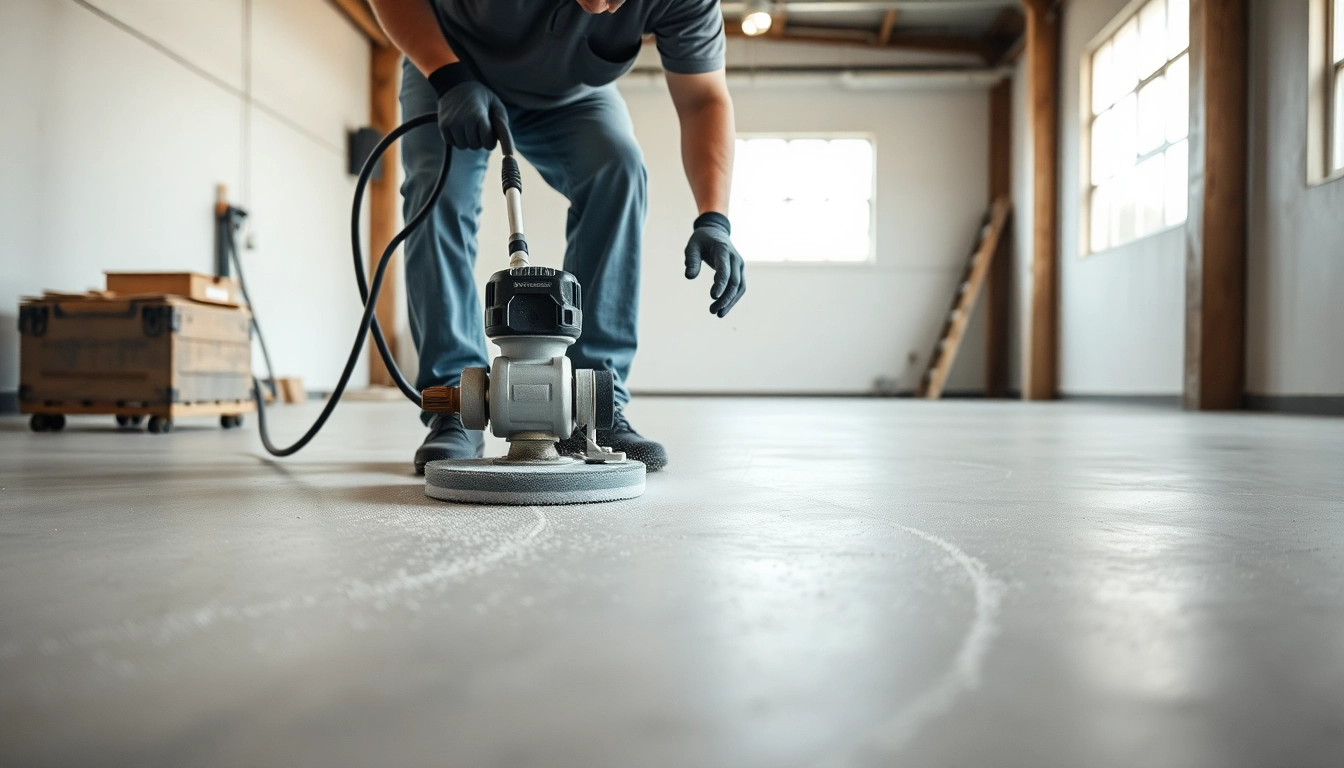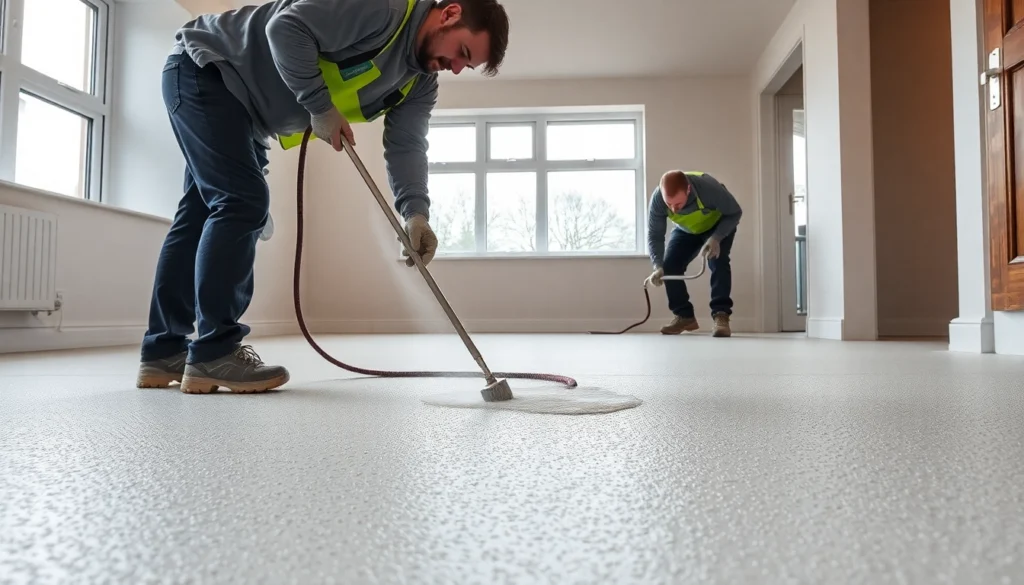Introduction to Floor Preparation in Birmingham
Achieving a flawless, durable, and professional-looking floor begins long before the final coat of finish is applied. Proper floor preparation is a critical step that sets the foundation for any successful flooring installation or coating project in Birmingham. Whether you’re installing hardwood, laminate, carpet, or resin floors, understanding the importance of meticulous preparation ensures longevity, safety, and aesthetic appeal. For local homeowners and contractors alike, partnering with experienced specialists in Floor preparation Birmingham can mean the difference between a floor that lasts decades and one that requires frequent repairs.
Why Proper Floor Preparation Matters
Properly preparing a subfloor is akin to laying a solid foundation for a building — it influences the entire project’s success. In Birmingham’s diverse construction landscape, factors like fluctuating moisture levels, concrete integrity, and existing coatings pose unique challenges. Inadequate preparation can lead to issues such as uneven surfaces, poor adhesion, cracking, and premature failure of the finished flooring.
For instance, a poorly prepared concrete slab may harbor moisture or contaminants that interfere with adhesives and coatings, leading to delamination or bubbling over time. Additionally, uneven floors can cause aesthetic imperfections and create trip hazards, compromising safety. Addressing these issues with thorough, expert floor preparation enhances the durability and appearance of the final flooring, ultimately saving time and costs in the long run.
Common Challenges in Floor Preparation
Despite its importance, floor preparation often encounters hurdles that can hinder project outcomes if not properly managed:
- Moisture in Concrete: Excess moisture can cause adhesion failure and mold growth.
- Surface Contaminants: Oil, grease, or old coatings compromise bonding.
- Surface Irregularities: Cracks, bumps, or dips require repair for a level surface.
- Existing Coatings: Paints, adhesives, or sealants may need to be removed.
- Environmental Conditions: Humidity and temperature fluctuations affect drying and curing times.
Addressing these challenges with advanced techniques and proper planning is vital, especially in Birmingham where climate and building age may influence surface conditions.
Overview of Local Standards and Regulations
In Birmingham, adherence to local building codes and industry standards is essential for legal compliance and safety assurance. Regulations govern aspects such as moisture content limits, surface evenness, and environmental safety guidelines. Organizations like BS EN 13813 specify requirements for floor screeds and overlays, while UK Building Regulations mandate safety and durability standards.
Partnering with certified specialists ensures compliance and quality assurance. For example, companies like Impact Flooring and Lazercote follow rigorous protocols for surface preparation, employing advanced testing and repair methods that meet or exceed regulatory standards. Aligning with local standards not only guarantees a compliant installation but also enhances the long-term performance of your flooring investment.
Techniques and Tools for Effective Floor Preparation
Diamond Grinding and Surface Smoothing
Diamond grinding is a cornerstone technique for preparing concrete floors. Using industrial-grade diamond blades mounted on grinders, professionals remove surface laitance, rough patches, and old coatings, creating a uniformly smooth and level base. This method effectively reduces dust and prepares the surface for primers or overlays. It’s particularly advantageous for handling contaminated or uneven slabs in Birmingham’s aging infrastructure.
Concrete Repair and Leveling Methods
Cracks, holes, or dips in concrete floors require repair to prevent future issues. Techniques include epoxy injections for cracks, self-leveling overlays, and cementitious patches. Skilled contractors assess the depth and extent of damage before choosing appropriate methods. In Birmingham, with its mix of residential and industrial sites, proper repair and leveling ensure a solid foundation compatible with diverse flooring systems.
Removing Old Coatings and Debris
Existing coatings—such as paints, adhesives, or epoxy resins—must be thoroughly removed to ensure adhesion of new materials. Methods include chemical stripping, mechanical abrasion, and shot blasting, depending on the coating’s nature and surface. Effective debris removal prevents contamination and enhances bonding, ultimately extending the lifespan of the new flooring.
Choosing the Right Materials for Floor Preparation
Types of Bonding Agents and Primers
Primers and bonding agents improve adhesion between the substrate and subsequent layers. epoxy primers are common for concrete, providing a moisture barrier and a mechanical grip. In Birmingham, selecting a primer compatible with the topcoat material ensures optimal performance. For instance, moisture-tolerant primers are recommended in areas prone to humidity, such as basements or ground floors.
Compatible Underlayments and Self-Leveling Compounds
Underlayments and self-leveling compounds create smooth, level surfaces over uneven or previously prepared floors. These products come in various formulations tailored to specific substrates and environmental conditions. For example, polymer-modified self-levelers are durable and used in commercial settings for their quick curing and high bonding strength.
Eco-friendly and Durable Solutions
With increasing emphasis on sustainability, many modern preparation materials offer eco-friendly options without compromising durability. Water-based primers, low-VOC sealants, and recyclable leveling compounds reduce environmental impact and improve indoor air quality, aligning with Birmingham’s green building initiatives.
Benefits of Professional Floor Preparation Services
Enhanced Durability and Safety
Professional preparation ensures that the subfloor can withstand ongoing use, weathering, and load stresses. Proper leveling reduces the risk of uneven wear and trip hazards, making spaces safer for occupants. For Birmingham commercial and residential projects, this translates into longer-lasting floors that retain their visual and structural integrity.
Reduced Installation Time and Costs
Skilled contractors use efficient techniques and high-quality tools to expedite the process, minimizing downtime. Advanced preparation can also reduce the need for expensive repairs or rework, providing significant cost savings over the project lifecycle.
Successful Adhesion and Long-lasting Floors
Properly prepared surfaces promote optimal bonding of flooring materials, preventing issues like curling, cracking, or delamination. In Birmingham’s climate, where moisture can variably affect underground and above-ground slabs, excellent preparation mitigates these risks, extending the life of your flooring investment.
How to Select a Reliable Floor Preparation Contractor in Birmingham
Qualities to Look for in a Provider
Experience, certification, and local reputation are key indicators of a trustworthy contractor. Look for firms with proven expertise in various preparation techniques, a portfolio of successful projects, and positive customer reviews. Companies like Impact Floors and WeCoat Birmingham exemplify standards of quality and professionalism.
Questions to Ask During Consultation
Key inquiries include: What specific preparation methods will you use? Do you adhere to local building codes? What is the estimated timeline? How do you handle moisture testing? Clear responses to these questions demonstrate competence and transparency.
Cost Estimates and Project Timelines
Reliable contractors provide detailed quotes outlining scope, materials, labor, and scheduling. While costs can vary depending on surface conditions and project size, avoid providers who give vague estimates. In Birmingham, a typical preparation project might range from a few hundred to several thousand pounds, depending on complexity.



